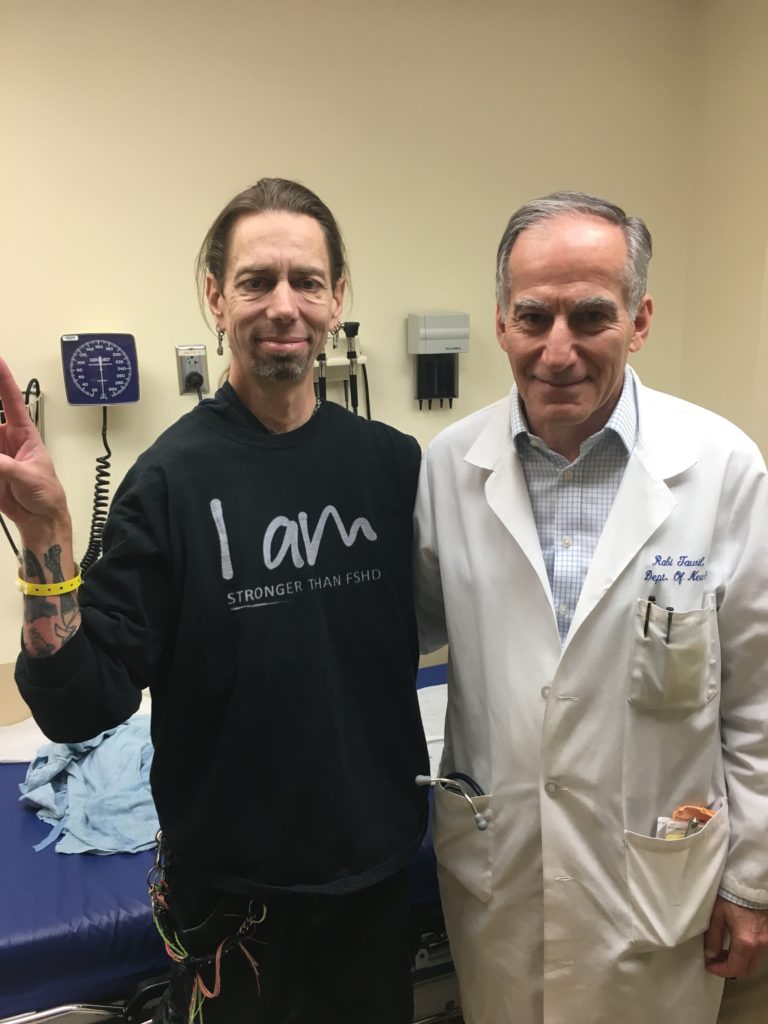
To crack the code of FSHD, patients are absolutely essential
All of the breakthroughs—the discovery of the genetic causes, understanding why some patients vary so greatly in the severity of their symptoms, teasing out the biochemical pathways that could point to future treatments—were made because patients stepped up to the plate.
Too often, we hear patients say they’ll volunteer when there’s a treatment. But we will never get to a treatment unless patients participate in fundamental research now. FSHD is uniquely human, so no laboratory mouse can ever fully model the disease. The genetic “package” that causes FSHD is found only in people. We owe an enormous debt to the patients who give DNA samples. Who submit to long interviews and exhausting physical tests. Allow a surgeon to cut out a small muscle sample. Who fight claustrophobia to lie in the narrow bore of an MRI machine.
Equally important are patients’ family members, both affected and unaffected, who provide the best experimental controls because of their shared genetic and environmental backgrounds. A parent or sibling who has very mild symptoms may hold the key to understanding the factors that protect against the full-blown development of FSHD symptoms in a more severely affected family member.
We are more hopeful today than ever before that a treatment is within sight. We cannot guarantee when that treatment will arrive, but here’s one thing we guarantee: If you volunteer for research, your participation will without question help move us a step closer to that day.
Scientific Overview of FSHD
Read the latest on wikipedia
Glossary of Scientific Terms
Acceleron Receives FDA Orphan Drug Designation for ACE-083
From BusinessWire CAMBRIDGE, Mass.–(BUSINESS WIRE)–Acceleron Pharma Inc. (NASDAQ:XLRN), a leading biopharmaceutical company in the discovery and development of TGF-beta therapeutics to treat serious and rare diseases, today announced that the… Read More »
FDA orphan drug designation for Genea Biocells’ FSHD drug candidate
Genea Biocells, a San Diego-based biotech company focused on drug development to treat neuromuscular diseases, today announced that it has been granted Orphan Drug Designation by the U.S. Food and… Read More »
DUX may be a master switch of the genome
The DUX4 gene in FSH muscular dystrophy is typically described as a rogue actor, a genetic oddball that is never supposed to be active in adult muscle, and is rendered… Read More »
Rochester FSHD Family Day videos
Watch the videos here. The University of Rochester Fields Center for FSHD Research has posted a summary and videos from the 6th annual FSHD Family Day Conference held on April… Read More »






